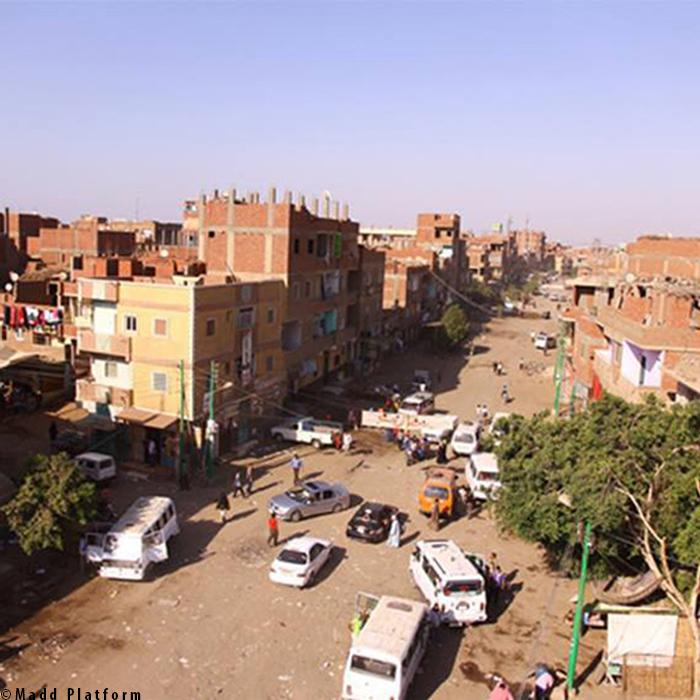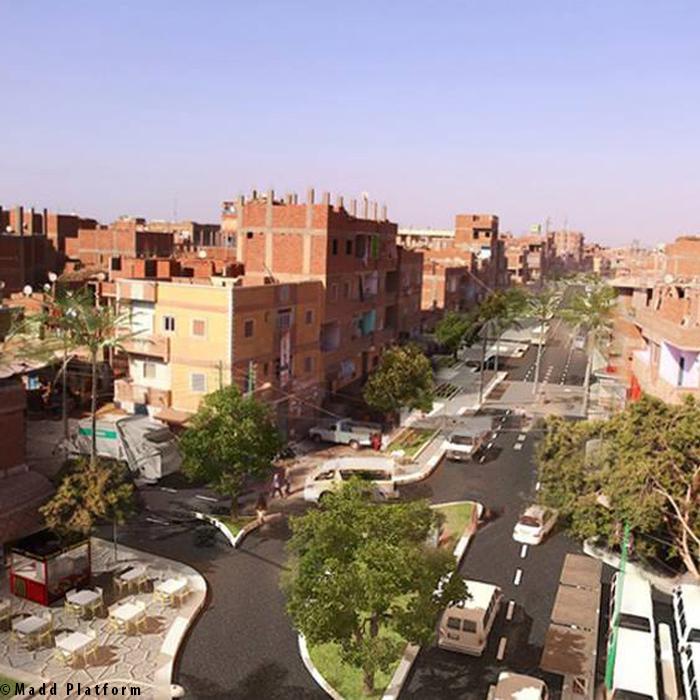Eman Zied ProposalParallel Practice: Bottom-Up Participatory Design in Impoverished Communities in EgyptIn Egypt urban design problems are tackled with counterintuitive measures, with decisions being taken by Cairo-centric, privileged institutions and high government without consulting the community. This method of top-down design creates conflict within society. To combat this, Madd Platform (Madd being the Latinised version of its Arabic name, meaning extension) developed a method of bottom-up design, reversing this process by consulting with the users and then sending the completed design to institutions to get permits and funds. The name ‘Madd’ itself signifies the extension of bridges between different sectors of society and the governing bodies. Egypt is a classist society, with the privileged having a ‘we-know-better’ attitude towards the unprivileged. This attitude creates rifts in society and has a negative impact in improving communities via design. When architecture students visit sites, people are mistrustful of us just because we are researching their area. They are genuinely afraid of being relocated or their homes destroyed to make way for another ‘vision’. In Madd's first project in Al-Kum Al-Ahmar in Giza, the task was to redesign a 1500m stretch of road which served as the village's main artery. The designers met with focus groups, assessed the situation, and then analysed the space as it was used by the community rather than how the government intended it to be used. The outcome was a street that was uniquely tailored to the community, with the road containing activities that they had requested and being maintained by an NGO (Non-Governmental Organisation). Afterwards, the design was sent to governmental bodies which approved funds to repave the road and realise the design. In their current project in Maspero, Madd Platform is performing a grassroots intervention in the form of a two-stage process, parallel participatory research and design. Residents of this area are being threatened with removal to make way for Gulf State investment projects. While these projects will make more money, it will leave thousands of residents homeless. The research phase is complete with the design phase underway. This project is a physical embodiment of the class struggle that takes place in Egypt, and how it develops in the long run will be testament to changing attitudes towards urban design. I was born in Egypt but lived in England until I was fourteen, and since returning I have been made aware and very uncomfortable with my social class. If I, firmly belonging in Egyptian upper middle class, feel like this, how do other people feel? This design approach is a refreshing change from what counts as renovation in this part of the world, which is usually patronising with distinct classist undertones. The question is, how to make this type of approach the rule rather than the exception? The word ‘strategy’ is used to refer to urban design problems, which brings to mind rich men in suits making impersonal decisions rather than a community working together to fix issues. Getting the community involved in design decisions forces privileged institutions to deal with people as people rather than as statistics.
Additional Help and InformationAre you in need of assistance? Please email info@berkeleyprize.org. |
|


